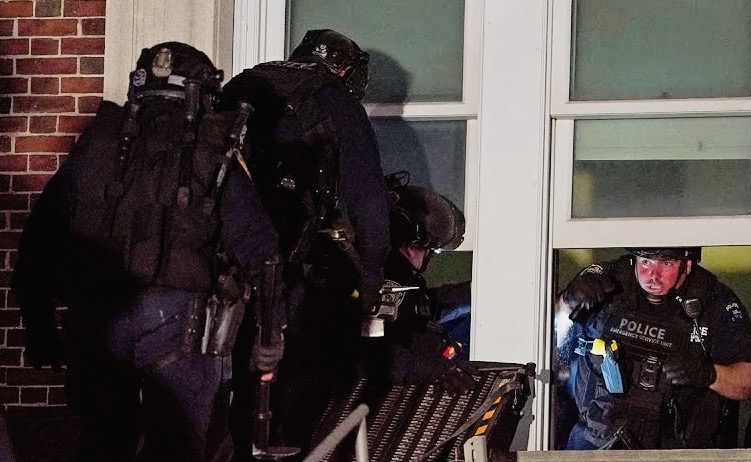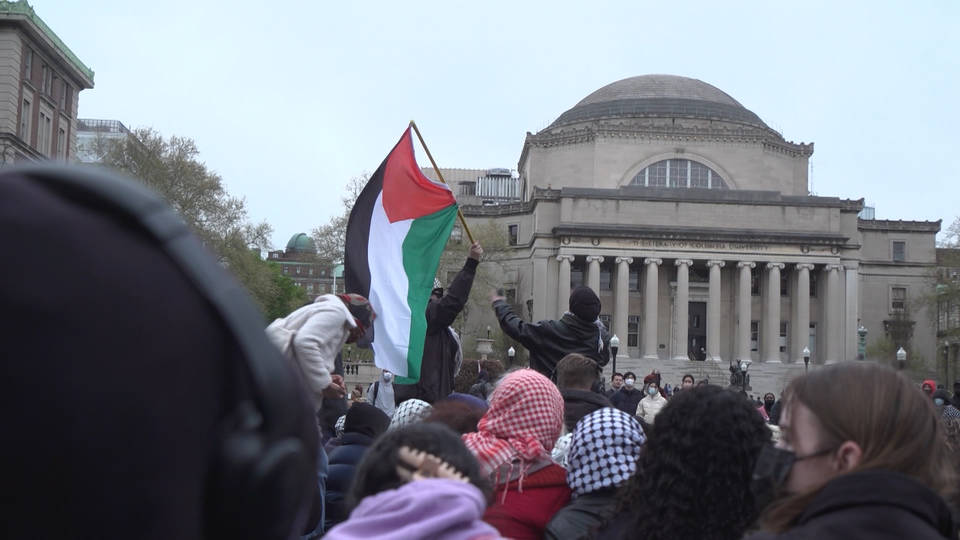Columbia University in New York City has done the right thing. It has confronted head-on an explosive issue that currently faces universities across North America.
In decisive fashion, it has dealt firmly with lawless pro-Palestinian students and outside agitators/subversives who had illegally set up an encampment on its grounds, who had barricaded themselves in a campus building, who had intimidated students who stand with Israel, and who had disrupted the daily routines and rhythms of university life.
Columbia’s president, Nemat Shafik, had no alternative but to call in the police on the night of April 30 to address a situation that had spun completely out of control.
Shafik’s decision to reach out to the New York Police Department was perfectly understandable, coming in response to “the actions of the protesters, not the cause they are championing,” the university said. “We have made clear that the life of campus cannot be endlessly interrupted by protesters who violate the rules and the law.”
In another statement, the university noted, “The encampment created an unwelcoming environment for many of our Jewish students and faculty and a noisy distraction that interferes with the teaching, learning and preparing for final exams.”
The mayor of New York City, Eric Adams, correctly defended the arrests of some 300 protesters, saying the police had exercised restraint.

Columbia’s method of dealing with the unrest, though unpalatable to Palestinians and their sympathizers, should be regarded as a template of how to resolve this contentious matter, which is inextricably connected to the ongoing Israel-Hamas war in the Gaza Strip.
Universities in the United States, Canada and Europe that have been engulfed by copycat occupations should seriously consider Columbia’s approach as they cope with unruly, arrogant and self-entitled students and their supporters whose overarching goals are to malign, marginalize and destroy Israel.
They are nothing less than cheerleaders for Hamas, a violent Islamic fundamentalist terrorist organization that triggered this war on October 7 with its massacre of some 1,200 Israelis and foreigners in southern Israel.

Columbia, which has been a focal point for demonstrations set off by the current war, had patiently attempted to resolve the problem through days of negotiations. It must be acknowledged that the talks broke down due to the unreasonable demands of the protesters, who insisted that Columbia should sever its academic and financial ties with Israel.
Much to its credit, Columbia rejected these demands, an integral component of the anti-Israel boycott, divestment and sanctions movement, which has been gaining ground on university campuses in recent years.
This is a development that does not bode well for Israel’s strategic relationship with the United States.
Unlike Columbia, Brown University appears to have shamelessly caved in to pro-Palestinian pressure. Demonstrators there dismantled their encampment yesterday only after the university agreed to discuss the divestment of university funds in companies invested in Israel.
The unauthorized emergence of pro-Palestinian encampments at universities is troubling inasmuch as it raises a fundamental question.
Students have every right to free speech and assembly, but these rights must not be allowed to degenerate into lawlessness and intimidation. Students who engage in illegal behavior should be held accountable by means of suspensions, expulsions and even criminal prosecution.
That being said, Palestinians in the West Bank and the Gaza Strip are entitled to self-determination through negotiations with Israel. Yet Palestinian statehood will not be achieved through violence and terrorism and as long as Hamas exerts influence over Palestinian public opinion.
These are basic truths that pro-Palestinian demonstrators in the United States and elsewhere apparently have yet to learn.
